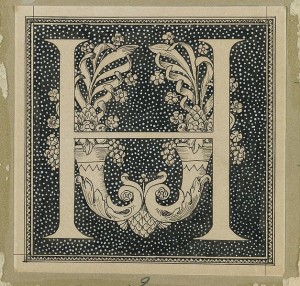Hallucinations: Morbid conditions of the mind in which an object is perceived which is not presented to the senses. They are either persistent, as in some forms of insanity, or occasional. Almost every one has had the experience of hearing one’s name called, for instance, when there was no sound. Their occurrence is often the result of anxiety or overwork.
Hats: Head coverings, distinguished from caps by the brim. The manufacture of fur and beaver hats was an important one in the colonies and early United States. The high silk hat was invented in Florence, 150 years ago. The United States manufactures $27, 811, 187 of hats annually, chiefly felt, wool and straw.
Hospitals: The name is derived from the medieval “hospitia,” or places, where lepers and other sufferers from pestiferous maladies were received. To-day hospitals have been devoted to every kind of disease or injury; and in some countries no part of public benefaction is better organized; in France especially such provisions being made that no patient is ever refused admission, there being no charges or formality of any kind. In the United States hospitals are either private or of a semi-public nature, the latter being endowed by funds supplied by state or municipality, subsequent needs being covered by subscriptions in exchange for so-called free beds. In recent years, the art of building and installing hospitals has made great progress, modern institutions combining absolute sanitation with those pleasant surroundings and comforts which contribute so much to convalescence in the patient.
Hygiene: The science of health, also called sanitary science. Personal hygiene consists in the care of the body, bathing, diet, care of teeth, hair, nails, etc., public hygiene in preventative measures for promotion of health of communities by cleanliness of streets, removal or destruction for breeding places of infection, drainage, pure air and good water supply. Moral hygiene includes those measures taken to secure the moral well-being of communities–includes purity of life, the suppression and regulation of vice and crime, in elevation of the world-standard of people at large, cure and prevention of diseases that arise from an evil life. Individual hygiene or sexual purity is one of the most important subjects and should be more thoroughly taught and inculcated into the minds of the youth, and judicious means taken to promote its practice for the general human welfare.
Hysteria: A morbid condition indicated by flatulency and the feeling of a lump or ball in the throat causing a sense of choking or suffocation. Involuntary laughing and crying precede the hysterical fit, in which the patient tosses about violently, and is liable to self-injury. A fit of hysteria often ends in the sufferer going off into stupor or coma , and sometimes this state is reached without preliminary signs. Hysteria is a curious ailment to deal with, being a nervous affection which feeds upon itself, and simulates many diseases. It is always best to exhibit no sympathy with the patient., who is generally a female, but to throw cold water upon her face, apply ammonia to her nostrils, and administer anti-spasmodics.
•Taken from the 1912 Standard Illustrated Book of Facts.
See also

